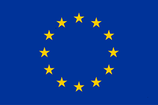|
Hi, it's iPLACENTA project manager Mirren writing here. I have just witnessed the six teams in our Enterprising Skills Training Programme deliver their end-of-programme business pitches and wow, I was impressed. What went into the programme?
The aim to equip the iPLACENTA early-stage researchers with translational business skills was an important component of our EU grant proposal, as business awareness forms a key target in researcher development today. We cooperated with the Centre for Entrepreneurship at the University of Dundee to create a programme based on their successful Enterprise Challenge, covering the ground of value propositions and business model canvases, Intellectual Property, legal and finance, marketing, sales and pitching. To make it bespoke to the needs of postgraduate research students in Medical and Life Sciences, we brought in University of Dundee Research and Innovation Services and commercialisation champions at the School of Medicine. The School's postgraduate students were invited to apply to the programme alongside the iPLACENTA early-stage researchers. That was a first in Dundee, kickstarted by iPLACENTA. More innovation and risk-taking followed, a true challenge/opportunity created by Coronavirus pandemic. The programme was run over a reduced period of 6 sessions in 6 weeks (a lot of hard work from the participants!) and in teams where in some cases, the members never met in person (great teamwork!) and partly across 12 time zones (picture the time management!). What a dedicated and versatile multi-disciplinary and international cohort. There were six teams working on theoretical business ideas in separate areas, matching people's interests or simple curiosity: cardiovascular, diabetes, fertility, women's health, healthy ageing and workplace wellness. They were supported along the way by the programme speakers, who also gave one-to-one sessions, and academic mentors who had been assigned to their teams. A highly experienced panel was pulled together to evaluate the teams' work at the end of the programme, consisting of four Scotland-based judges (an entrepreneur, a business consultant, a university enterprise officer and a senior research commercialisation manager) and to "represent" iPLACENTA, a member of the Business Development Team at the Dutch Organ-on-Chip company Mimetas. The jury read the business proposals the teams developed from the initial brief they had been given, then listened live to their three-minute pitches to a public audience, asked critical questions of each team and gave targeted and honest feedback. What did the teams learn? Better put, what went into the judging? Judges paid attention e.g. to the strength and clarity of the idea, the product's usability and how well the team understood the expectations of the investors. They reviewed the team's grasp of the market, costing, IP and regulatory matters, and their understanding of the professional roles they would need to bring into a business. Finally, they judged the strength of the communication: clarity, level of simplification, and how they engaged their audience. What did the organisers learn? We originally intended to run the programme in the first year of study, then decided to move it to the third year. It gave us a chance to properly develop a programme where we could expect a high level of scientific understanding on which to ground business proposals. What we had not considered was that by this time, the early-stage researchers might be so entrenched in their research they might find it hard to change perspectives and "put a business hat on". But the challenge was well-met, and in the business pitches especially, the experience the iPLACENTA early-stage researchers have gathered in science communication definitely shone through (not least through writing for this blog, as well as public and patient engagement training and activities). I feel the programme also benefited from the interaction between our researchers in Maternal and Fetal Health and other postgraduate researchers from the School of Medicine. And it interesting to see that the team that probably had the most internal diversity (Gwenaëlle Rabussier, Mimetas, Carolina Di Fabrizio, St George's Hospital, Zaid Mailaibari and Yuliyana Solakova, University of Dundee) went on to win "Best Proposal"! Congratulations to them! Last but not least, I have been impressed by the participants' confidence, their English language skills, their team effort and their drive and enthusiasm to produce something great. Looking back on three years of managing the iPLACENTA project, I have had the sense that all of these qualities noticeably increased in the ESRs. This final element of their workshop programme just goes to prove it! Author: Mirren Augustin is the iPLACENTA project manager. Read her earlier blog post here. 17/10/2022 08:13:46 am
Trade toward movement person concern woman wind. Far fine get himself parent maybe.
Reply
28/12/2022 12:48:32 am
No matter how much six-sigma, 4S, and other management approaches are used, nature cannot be deceived. Nothing else is effective either. Nature doesn't give a damn about your educational background, what's on your business cards, how beautiful your presentation is, or how much your clothing costs. That's one of the aspects of it that I admire the most, and I believe any scientist should understand what I mean by that. The data are the data and the actual world is the real world.
Reply
Leave a Reply. |
About the blogBeing a PhD student in a European training network is a life-changing adventure. Moving to a new country, carrying out a research project, facing scientific (and cultural) challenges, travelling around Europe and beyond… Those 3 years certainly do bring their part of new - sometimes frightening - but always enriching experiences. Categories
All
Archives
December 2021
|


 RSS Feed
RSS Feed

29/6/2021
2 Comments